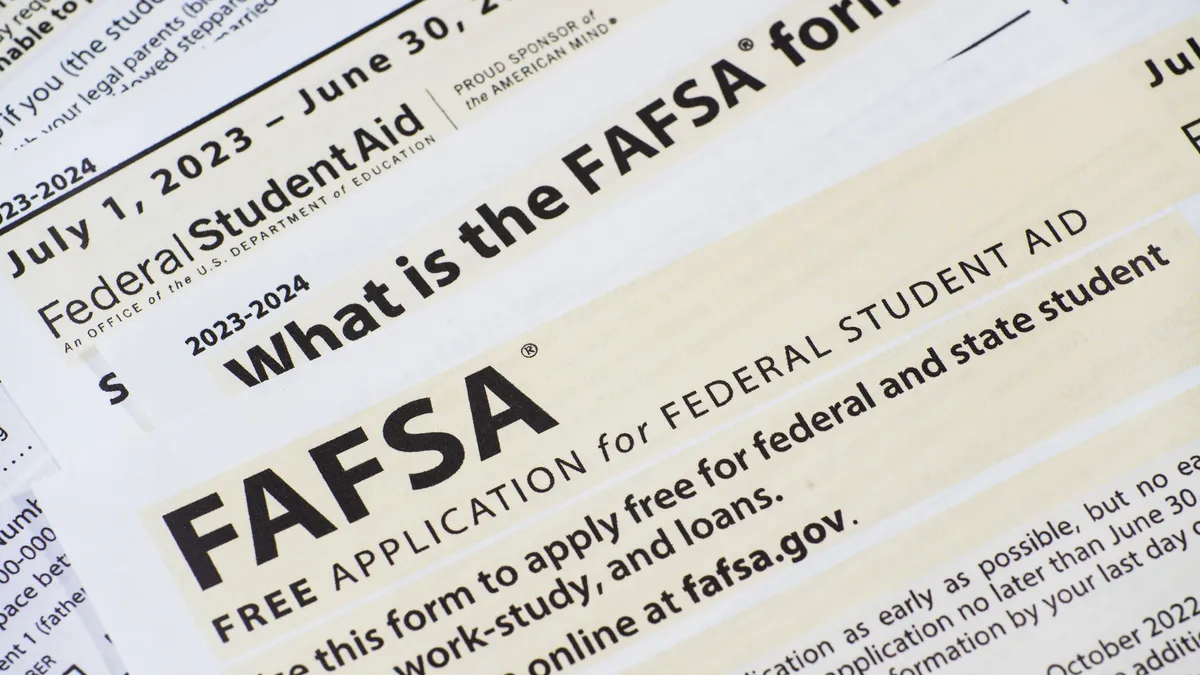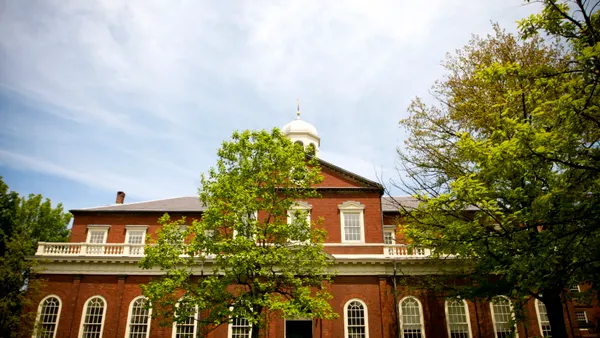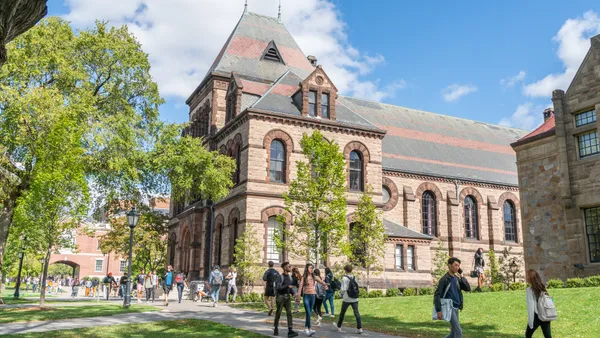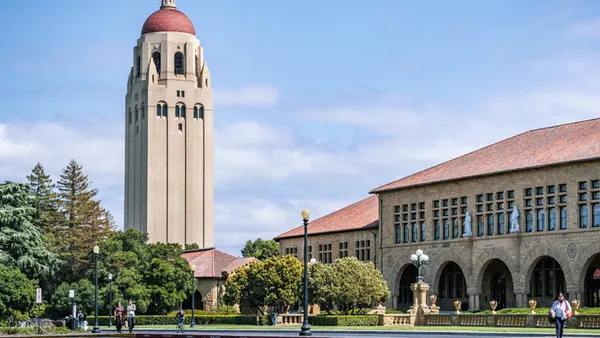Dive Brief:
- The U.S. Supreme Court announced Friday that it will decide whether it was legal for the Trump administration to attempt to end the Deferred Action for Childhood Arrivals (DACA) program in 2017, The Wall Street Journal reported.
- The Trump administration has contended the DACA program, which allows nearly 700,000 people to study and work in the U.S. in two-year blocks, is illegal because it was set up through an executive order.
- Several lower courts have blocked the Trump administration from phasing out the program. The Supreme Court is expected to reach a decision that will determine DACA's fate in 2020.
Dive Insight:
Many colleges have voiced their support for DACA, with some even mounting legal challenges against the Trump administration's efforts to end the program.
DACA students make up a growing share of the college-going population. Although exact data is not available, the Migration Policy Institute reported around 241,000 students enrolled in college in 2014 were eligible for the program.
In September of 2017, the University of California System was the first college to file a lawsuit challenging the termination of the program. Princeton University soon followed. And in 2018, 19 colleges — including Dartmouth University, Northwestern University and the Massachusetts Institute of Technology — signed onto an amicus brief to support a lawsuit fighting to uphold DACA.
"DACA is a wise and humane policy that benefits this country in multiple ways," Princeton University spokesperson Ben Chang said in a statement issued Friday. "It has allowed talented and motivated students … to pursue educations and contribute positively to our country. Eliminating protections for Dreamers would be a mistake."
More than 700 of colleges' top leaders have signed an open letter supporting the DACA program. And many colleges are ramping up their support for undocumented students in light of the Trump administration's attempts to get rid of DACA.
In California, for example, 32 colleges are using grants to provide undocumented students with resource centers, mental health support and other services. And more institutions are setting up on-campus resource centers for DACA students that offer individualized mentoring and help with navigating the policies that affect them.
TheDream.US, a nonprofit that gives out scholarships to undocumented students, recommends that colleges establish or expand such centers, as well as increase financial support for immigrant students.
Those kinds of services can be critical, as surveyed undocumented college students have become increasingly anxious about their futures, TheDream.US found. Out of the organization's 1,400 scholars, for example, more than 80% said they were "very anxious" about their immigration status, and one-quarter said they're uncomfortable crossing state lines because they fear encountering immigration officials.
"President Trump's attacks on the DACA program have kept over 200,000 Californian DACA recipients and their families living with fear and uncertainty about their future," California Gov. Gavin Newsom said in a statement. "They represent the best of us and their future should not be hanging in the balance."













